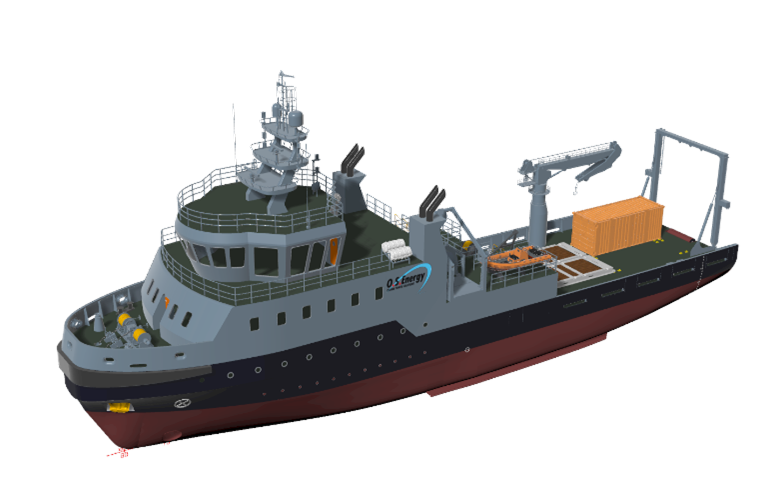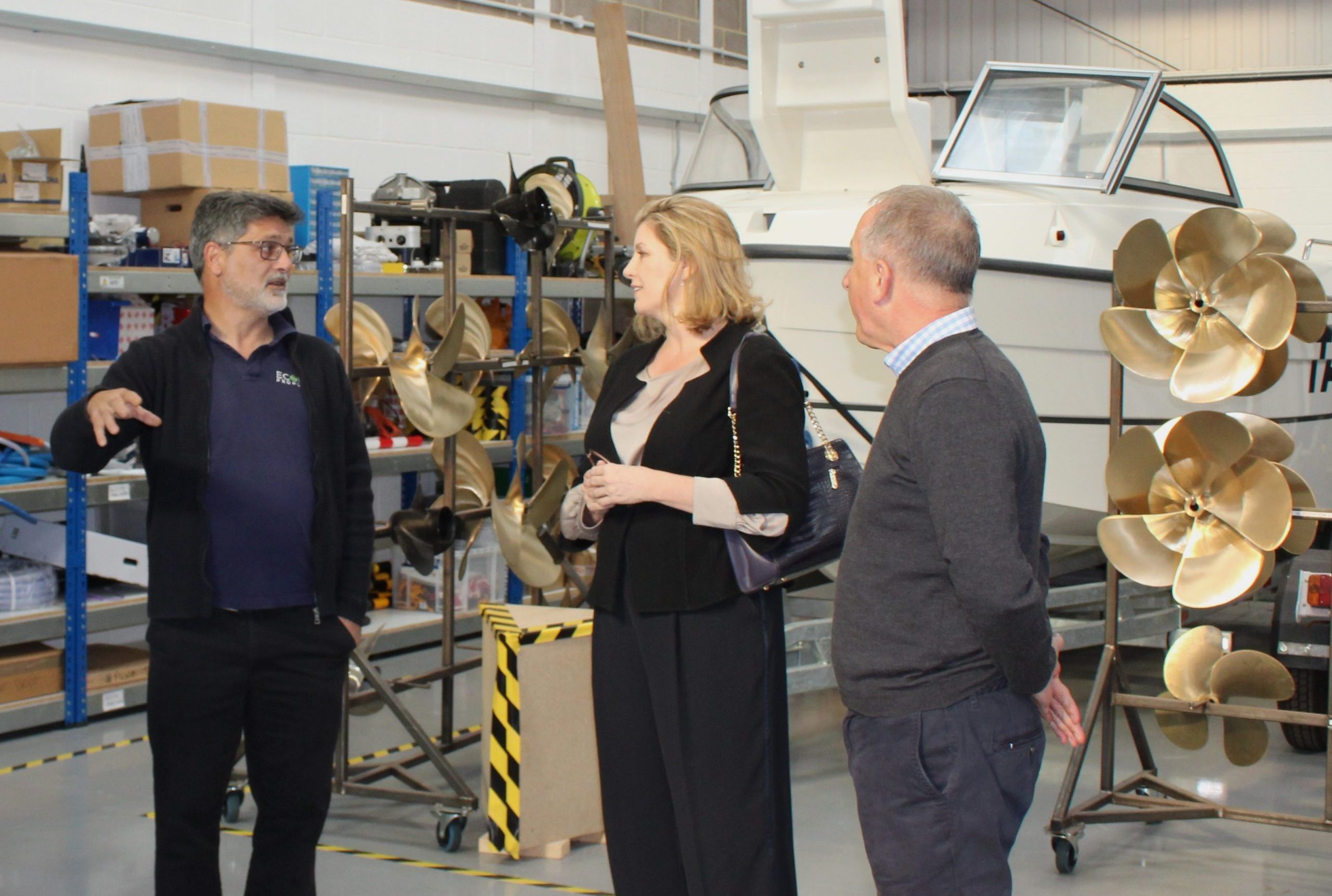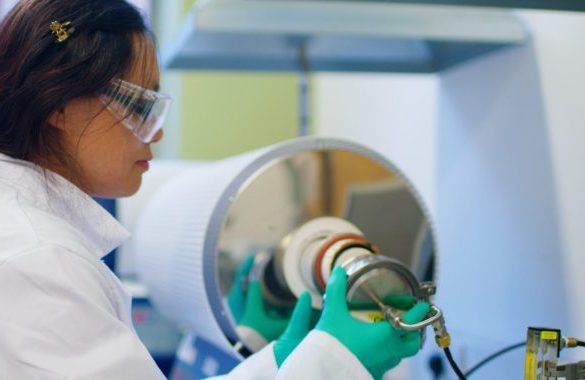A research and development project to demonstrate the technical and economic feasibility of achieving zero emission operations in offshore survey and research vessels (OSRVs) has been awarded funding under the UK government’s Clean Maritime Demonstration Competition Round 2.
Project Zero is a collaboration between O.S. Energy, Newcastle Marine Services, the University of Strathclyde, Ecomar Propulsion, the University of Exeter, Cedar Marine, Chartwell Marine and Solis Marine Engineering.
Starting in January 2023, the eight partners will investigate innovative ship designs and integration with energy efficient hybrid drive train systems to increase overall ship efficiency resulting in significant reduction of greenhouse gas emissions and accelerating the transition to zero emission fuels.
Martin Nuernberg, director at O.S. Energy UK, said: “The main focus is the feasibility and route to market for the design and supply of a new build zero-emission OSRV within the UK. Providing a crucial step in the transition to zero-emission ships, the vessel’s modular powertrain and support of Offshore Renewable Energy developments will provide strong synergies in support of the UK’s target for the maritime sector through the Clean Maritime Plan and the transition to net zero by 2050.”
Eugene Bari, CEO Ecomar Propulsion said, “There is already a requirement for thousands of similar vessels just to service the UK’s windfarms. Looking across Europe, there is demand for hundreds more and there is a huge global market. But money isn’t the main driver, the most important thing is tackling the climate emergency. In 2020 UK domestic maritime vessels contributed around 5% of the UK’s domestic greenhouse gas emissions – more than trains and buses combined. It is up to us, the innovators, to seize this massive opportunity and set the agenda for the next 100 years.”
While in the short term a mix of fuel will be used to allow zero emission propulsion in an industrial environment with an innovative engine room configuration, moving with regulatory and technological developments in the long term the vessel will be able to operate purely fuelled by hydrogen, ammonia or other alternative fuels.
The project addresses key challenges and barriers of achieving zero-emission propulsion and strengthening the UK maritime industry such as:
• Energy efficiency improvements of ship and integrated systems in light of transition from high energy fossil fuels.
• Significantly reducing GHG emissions of offshore renewable support activities.
• Integration of innovative drive train systems and control strategies for hybrid electric operations.
• Advancing development and justification of new rules and regulations relating to the storage, handling and operation of alternative fuels in the maritime industry.
• Accelerating supply chain developments, skills and education towards building world leading offshore support vessels in the UK.
About CMDC2
Project Zero is part of the Clean Maritime Demonstration Competition Round 2 (CMDC2) which was launched in May 2022, funded by the Department for Transport and delivered in partnership with Innovate UK. As part of the CMDC2, the Department allocated over £14m to 31 projects supported by 121 organisations from across the UK to deliver feasibility studies and collaborative R&D projects in clean maritime solutions.
The CMDC2 is part of the UK Shipping Office for Reducing Emission’s (UK SHORE) flagship multi-year CMDC programme. In March 2022, the Department announced the biggest government investment ever in our UK commercial maritime sector, allocating £206m to UK SHORE, a new division within the Department for Transport focused on decarbonising the maritime sector. UK SHORE is delivering a suite of interventions throughout 2022-2025 aimed at accelerating the design, manufacture and operation of UK-made clean maritime technologies and unlocking an industry-led transition to Net Zero.






